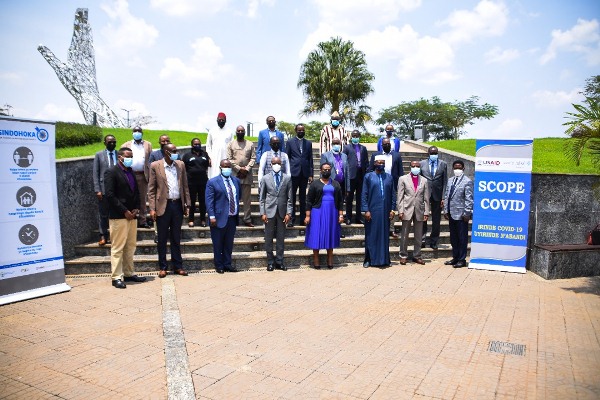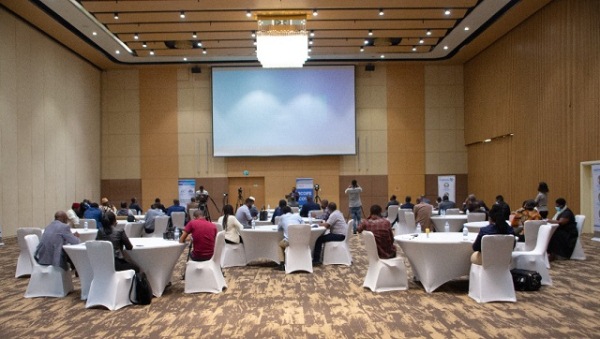
The Ministry of Health through Rwanda Biomedical Centre in partnership with World Relief Rwanda under the support of USAID organized a five-day workshop bringing together faith leaders under the Rwanda Interfaith Council on Health (RIC) to combat misconceptions and rumors among the congregants.
Tremendous achievements have been recorded in communication to combat the COVDI-19 but some rumors and misconceptions still hamper the progress in battling the COVID-19 pandemic.
These barriers include conspiracy theories and rumors that Covid-19 is just a political trick or that Covid-19 vaccine is within accomplishments of the apocalypse and a satanic agenda, or that the vaccine causes infertility, among others.

To address these issues, religious leaders are urged to accelerate more engagement in COVID-19 response.
According to Dr. Tharcisse Mpunga, the Minister of State in charge of primary healthcare, Religious leaders, faith-based organizations, and faith communities can play a major role in saving lives and reducing illness related to COVID-19.
“Congregants attend voluntarily church and mosque assemblies to pray; they can listen and practice what their leaders ask them to do. More than 90% of Rwandans are members of faith based organizations, and they are among those people who are infected by Covid-19,” Said Dr. Mpunga.
According to Usta Kaitesi, the CEO of Rwanda Governance Board, common understanding is a precondition to embark on fighting the COVID-19 pandemic.
“I would like to mention two issues, some people pray in prohibited places such as caves, gathering in homes in a big crowd, even during curfew hours. There are also some believers who also violate all measures against COVID-19 under the pretext that these measures are satanic. We need to educate them and give them punishments when necessary; our rules and regulations are clear.”
“We have been spreading awareness messages and we now look forward to doing more in educating people with such rumors to adhere to the guidelines currently in force in order to win this pandemic.”
Church leaders are regarded as influencers in Rwandan community and in times of crisis, people turn to them for health and hope.
Mufti Salim Hitimana, Vice Chairperson, RIC said, “We are going to meet congregants who do not observe COVID-19 measures, listen to and talk with them because the Covid-19 fears no country, religion, race nor gender, when one does not pay attention, it might take away her/his life.”
Dr. Pascal Bataringaya, the Chairperson of EPR in Rwanda said, “Those who have misconceptions are in a wrong way, because God himself commands us to protect our life and Jesus himself says ‘I have come in order that you might have life’; we will approach those who violate measures and advise them so that they can change their minds and come in the right way” He said.
Moses Ndahiro, Country Director of World Relief Rwanda said they started with members of RICH because they are organized under one umbrella and they plan to include other religious denominations that are not members of RICH.
RIC is an umbrella of religious organizations which are grouped in six confessional groups namely; the Episcopal conference of Rwanda, the Province of the Anglican Church in Rwanda, the Protestant Council of Rwanda, the Evangelical Alliance of Rwanda, Rwanda Muslim Community, Fédération des Eglises Protestantes Réformées au Rwanda (FEPR).(Fin).
